
Dakar: The Pulsating Heart of West Africa
Dakar, the vibrant capital of Senegal, is a city where tradition meets modernity. Positioned on the Cape Verde Peninsula, this bustling metropolis offers a rich tapestry of experiences that captivate every type of traveler. From its lively markets and historic landmarks to its stunning beaches and vibrant nightlife, Dakar is a city that promises adventure at every turn. Begin your journey in the heart of Dakar at the iconic Place de l'Indépendance, where you can soak in the city's colonial architecture and energetic atmosphere. A short drive away, the African Renaissance Monument stands tall, offering panoramic views of the city and the Atlantic Ocean. History enthusiasts will appreciate a visit to Goree Island, a UNESCO World Heritage site that tells the poignant story of the transatlantic slave trade. For a taste of local culture, wander through the bustling streets of Sandaga Market, where you can find everything from traditional crafts to fresh produce. Art lovers will enjoy the eclectic mix of galleries and museums, such as the IFAN Museum of African Arts and the Village des Arts. Don't miss the chance to experience Dakar's vibrant music scene, with its blend of traditional Senegalese rhythms and contemporary beats. When it's time to relax, Dakar's coastline offers some of the best beaches in West Africa. Ngor Island and Yoff Beach are perfect for sunbathing, swimming, and water sports. For a more secluded escape, head to the Pink Lake (Lac Rose), known for its striking pink waters and salt production. Dakar's culinary scene is equally impressive, with a wide range of restaurants serving everything from street food to fine dining, showcasing the rich flavors of Senegalese cuisine.
Local tips in Dakar
- Visit Goree Island early in the morning to avoid the crowds and make the most of your time exploring its historic sites.
- Use local taxis or rideshare apps for getting around the city, as public transportation can be crowded and confusing for newcomers.
- Try the local dish 'Thieboudienne,' a flavorful fish and rice dish considered the national dish of Senegal.
- Be sure to bring cash, as many markets and smaller vendors do not accept credit cards.
- Learn a few basic phrases in French or Wolof, as it will enhance your interactions with locals and make your visit more enjoyable.
Neighbourhoods in Dakar
Dakar: The Pulsating Heart of West Africa
Dakar, the vibrant capital of Senegal, is a city where tradition meets modernity. Positioned on the Cape Verde Peninsula, this bustling metropolis offers a rich tapestry of experiences that captivate every type of traveler. From its lively markets and historic landmarks to its stunning beaches and vibrant nightlife, Dakar is a city that promises adventure at every turn. Begin your journey in the heart of Dakar at the iconic Place de l'Indépendance, where you can soak in the city's colonial architecture and energetic atmosphere. A short drive away, the African Renaissance Monument stands tall, offering panoramic views of the city and the Atlantic Ocean. History enthusiasts will appreciate a visit to Goree Island, a UNESCO World Heritage site that tells the poignant story of the transatlantic slave trade. For a taste of local culture, wander through the bustling streets of Sandaga Market, where you can find everything from traditional crafts to fresh produce. Art lovers will enjoy the eclectic mix of galleries and museums, such as the IFAN Museum of African Arts and the Village des Arts. Don't miss the chance to experience Dakar's vibrant music scene, with its blend of traditional Senegalese rhythms and contemporary beats. When it's time to relax, Dakar's coastline offers some of the best beaches in West Africa. Ngor Island and Yoff Beach are perfect for sunbathing, swimming, and water sports. For a more secluded escape, head to the Pink Lake (Lac Rose), known for its striking pink waters and salt production. Dakar's culinary scene is equally impressive, with a wide range of restaurants serving everything from street food to fine dining, showcasing the rich flavors of Senegalese cuisine.
When is the best time to go to Dakar?
Iconic landmarks you can’t miss
African Renaissance Monument
Discover the African Renaissance Monument in Dakar - a majestic symbol of hope, unity, and cultural pride, offering breathtaking views and rich history.
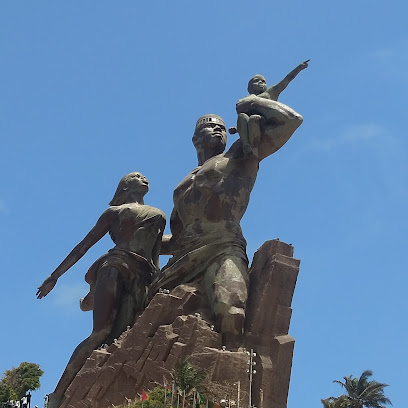
Marché Sandaga
Discover the vibrant heart of Dakar at Marché Sandaga, where local culture, crafts, and cuisine come together in a sensory celebration.
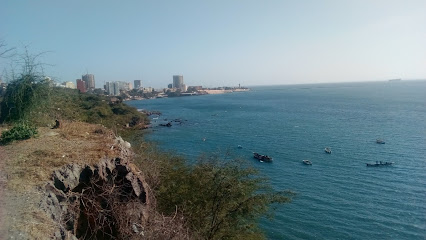
Hann Zoological Park
Discover Hann Zoological Park in Dakar – a vibrant oasis of wildlife and lush landscapes perfect for families and nature enthusiasts.
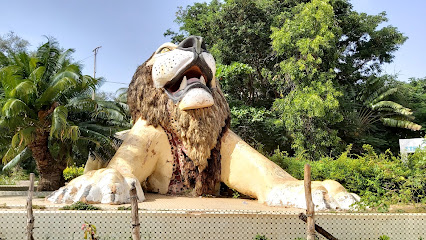
Place du Souvenir Africain
Discover the rich heritage of Africa at Place du Souvenir Africain, a monumental tribute in the heart of Dakar, blending culture, history, and vibrant local life.
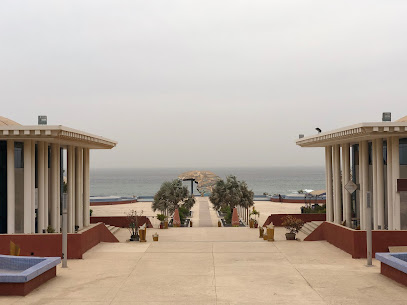
House of Slaves
Explore the House of Slaves on Gorée Island, a UNESCO World Heritage Site that reveals the profound history of the transatlantic slave trade.

Phare des Mamelles
Experience the vibrant culinary scene at Phare des Mamelles, where stunning views meet exquisite dining and lively entertainment in Dakar.
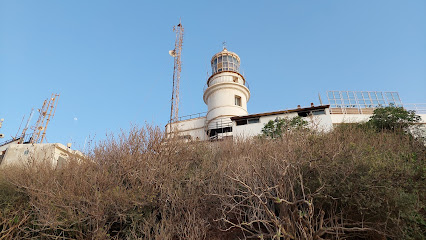
Marché soumbédioune
Discover the vibrant colors, flavors, and crafts of Dakar at Marché Soumbédioune, the heart of Senegalese culture and shopping.
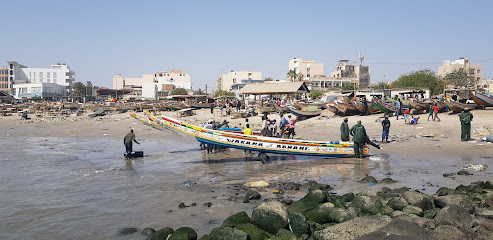
Mosque of the Divinity
Explore the architectural beauty and spiritual essence of the Mosque of the Divinity in Dakar, a must-visit cultural landmark in Senegal.
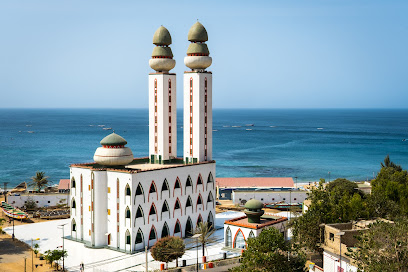
Grand Mosque of Dakar
Explore the Grand Mosque of Dakar, a stunning fusion of architecture and spirituality in the heart of Senegal's capital, reflecting rich cultural heritage.
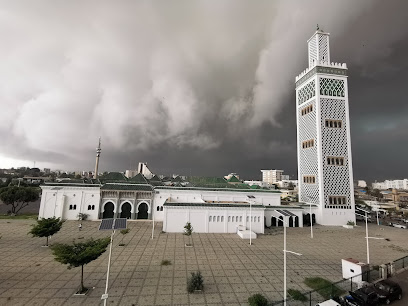
Monument du Millénaire
Explore the Monument du Millénaire in Dakar, a stunning historical landmark that embodies Senegal's rich cultural heritage and offers a tranquil escape.
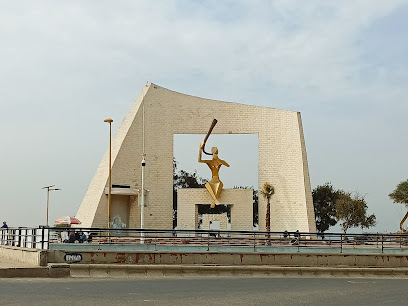
Loman Art House - Art Gallery
Explore the Loman Art House in Dakar: A captivating art gallery and café showcasing the essence of Senegalese culture and creativity.
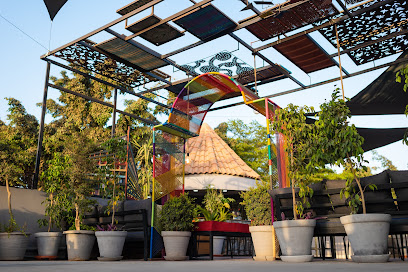
Mémorial Gorée-Almadies
Explore the Mémorial Gorée-Almadies in Dakar, a memorial dedicated to the legacy of the transatlantic slave trade, rich with history and cultural significance.
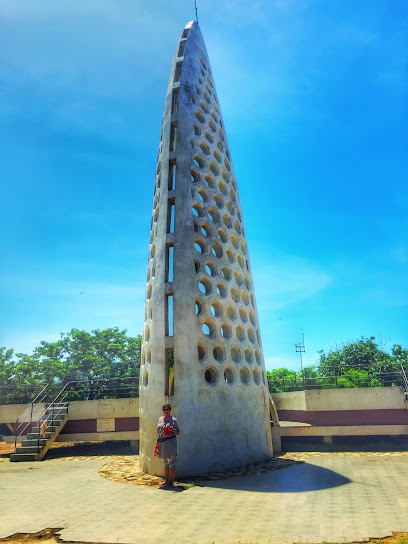
Village Des Arts
Explore the vibrant art scene of Senegal at Village Des Arts, a creative hub in Dakar showcasing local talent and contemporary masterpieces.
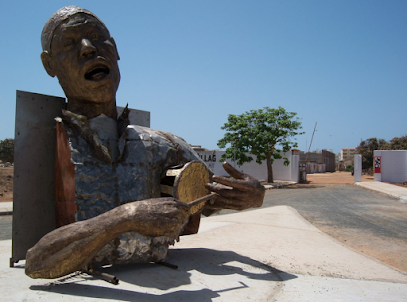
House Of Urban Culture
Discover the vibrant arts scene at the House of Urban Culture in Dakar, showcasing local talent through exhibitions, workshops, and performances.
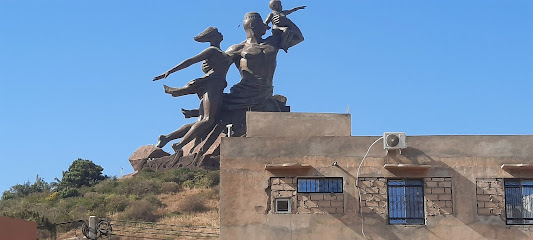
Corniche Ouest
Experience breathtaking ocean views and vibrant local culture at Corniche Ouest, Dakar's premier coastal promenade for a perfect day out.
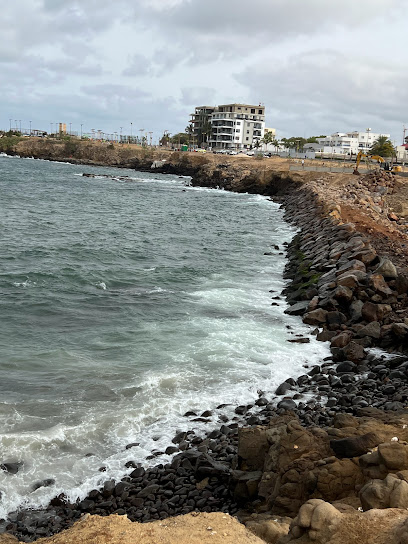
Unmissable attractions to see
Marché Sandaga
Discover the vibrant heart of Dakar at Marché Sandaga, a bustling market filled with local crafts, street food, and authentic Senegalese culture.
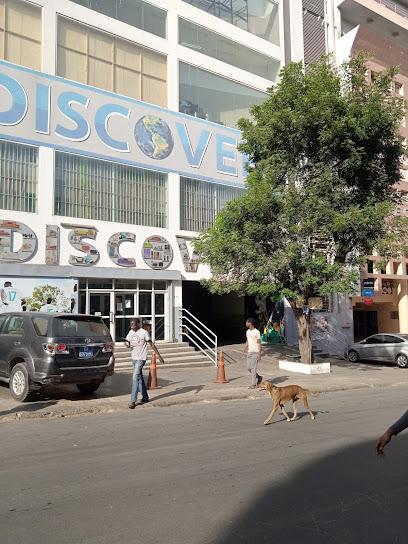
Hann Zoological Park
Explore the lush landscapes and vibrant wildlife at Hann Zoological Park, a must-visit attraction in Dakar for nature enthusiasts and families alike.
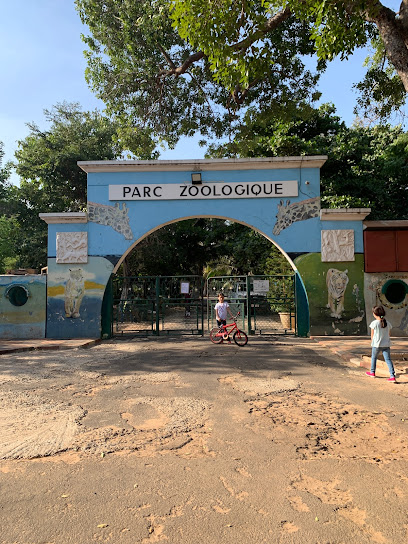
Plage BCEAO
Discover the vibrant atmosphere of Plage BCEAO, Dakar's public beach, where relaxation meets local culture and breathtaking ocean views.
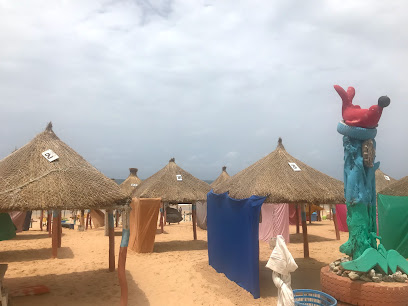
Marché soumbédioune
Explore Marché Soumbédioune: A vibrant market in Dakar offering fresh seafood, local crafts, and an authentic taste of Senegalese culture.
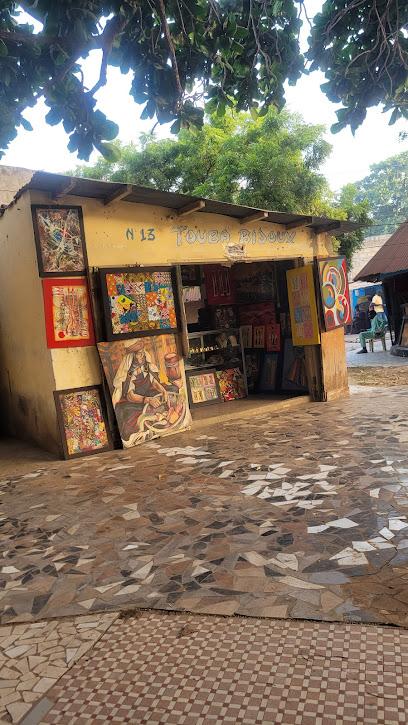
The Museum of Black Civilisations
Explore the rich tapestry of African history and culture at The Museum of Black Civilisations in Dakar, a unique cultural landmark.
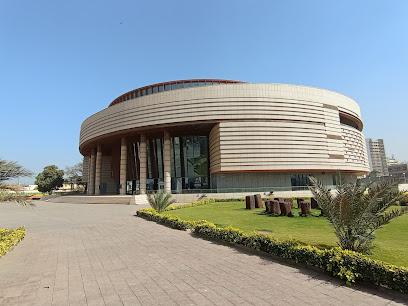
Lake Retba
Experience the stunning hues and unique culture of Lac Rose, a mesmerizing destination in Senegal known for its vibrant pink waters and rich local heritage.
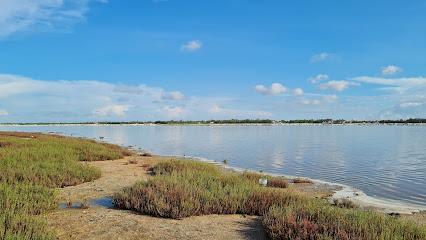
Mosque of the Divinity
Explore the architectural beauty and spiritual significance of the Mosque of the Divinity in Dakar, a must-visit tourist attraction offering cultural insights.
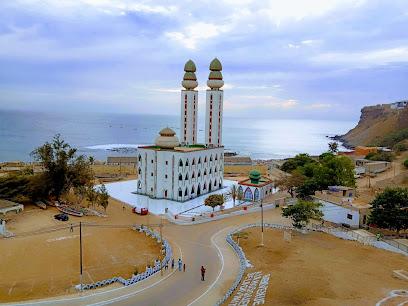
Grand Mosque of Dakar
Experience the grandeur of the Grand Mosque of Dakar, where captivating architecture meets profound spirituality in Senegal's bustling capital.
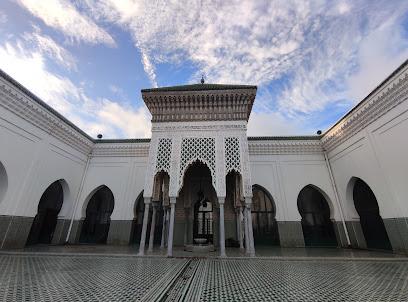
Casino Du Port
Discover the excitement and elegance of Casino Du Port, a premier gaming destination in Dakar, Senegal, where thrilling experiences await.
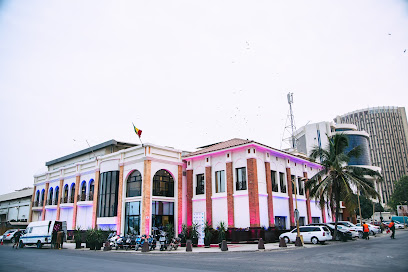
Loman Art - B&B - Gallery
Experience the artistic spirit of Dakar at Loman Art, a charming bed & breakfast featuring a gallery, swimming pool, and vibrant events.
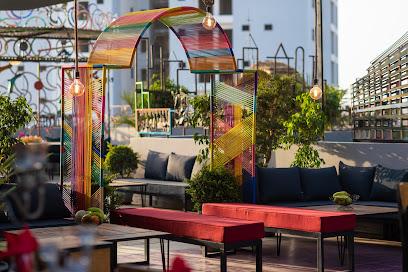
Village Des Arts
Explore the vibrant Village Des Arts in Dakar, a dynamic art center where local artists showcase their creativity and cultural heritage.
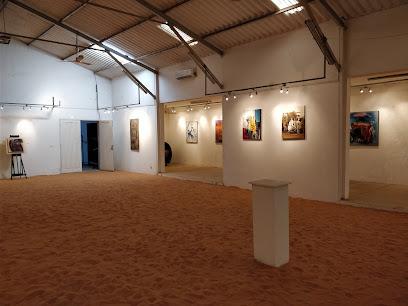
Corniche Ouest
Experience the stunning coastal views, vibrant culture, and delicious cuisine of Corniche Ouest, a must-visit destination in Dakar, Senegal.
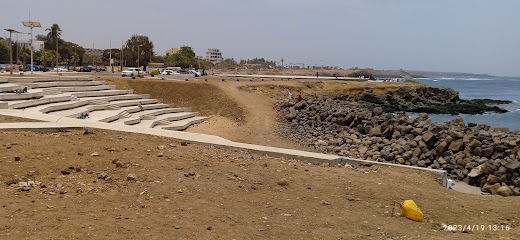
Galerie Arte
Discover contemporary and traditional Senegalese art at Galerie Arte, a vibrant gallery showcasing local talent and craftsmanship in the heart of Dakar.
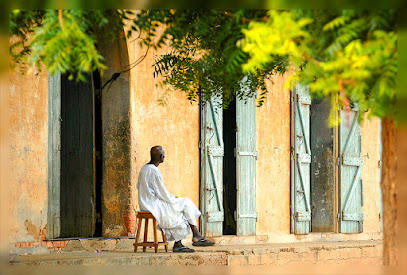
Travelwithziggy
Explore the stunning landscapes and rich cultural heritage of Mamelles Cité Mbackiyou in Dakar, a must-visit tourist attraction for every traveler.
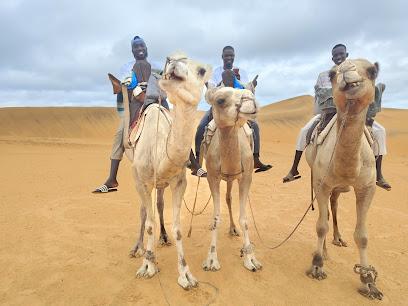
Yoff Fishing wharf
Discover the vibrant culture and breathtaking views at Yoff Fishing Wharf, a must-visit attraction in Dakar, Senegal.
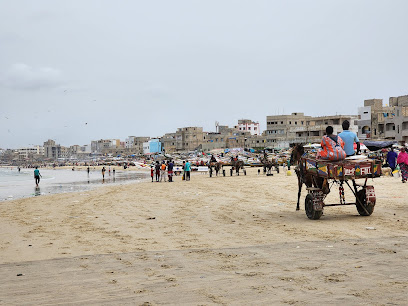
Essential places to dine
Restaurant le BAZOFF
Savor the vibrant flavors of Senegal at Restaurant le BAZOFF in Grand Dakar - where culinary tradition meets modern flair.
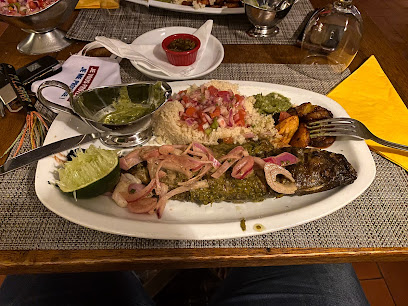
Restaurant Le Lagon 1
Experience the best of Senegalese cuisine at Restaurant Le Lagon 1 in Dakar – where every meal is paired with stunning ocean views.
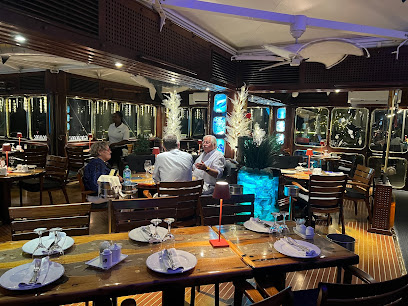
Chez Fatou
Discover authentic Senegalese flavors at Chez Fatou – where every meal is a celebration of culture and taste in vibrant Dakar.
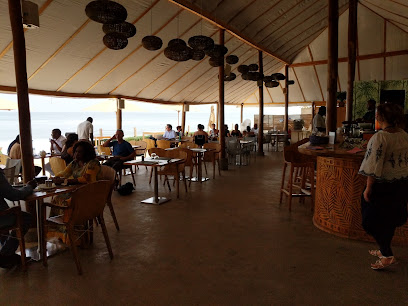
Restaurant La Pointe des Almadies
Experience authentic Senegalese cuisine with stunning ocean views at Restaurant La Pointe des Almadies in Dakar.
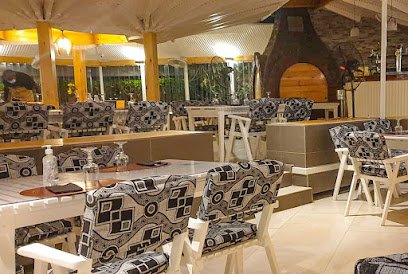
L'Orientale
Experience authentic Lebanese flavors at L'Orientale in Dakar - where tradition meets taste.
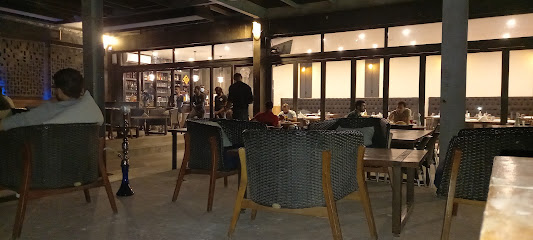
The Seoul Restaurant 2.0
Experience authentic African cuisine at The Seoul Restaurant 2.0 in Dakar—where traditional flavors meet modern dining.
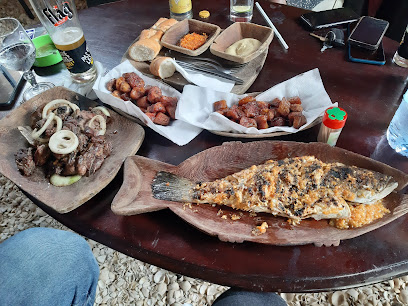
Restaurant Le N'Gor Pieds dans l'Eau
Experience exquisite seafood dining with breathtaking ocean views at Restaurant Le N'Gor Pieds dans l'Eau in Dakar.
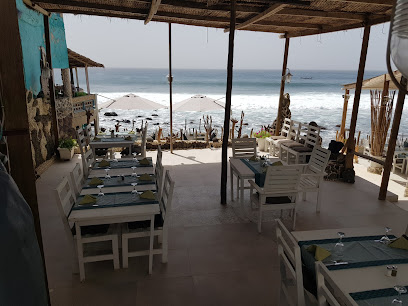
Noflaye Beach
Experience delightful crepes and stunning ocean views at Noflaye Beach in Dakar - where culinary art meets coastal beauty.
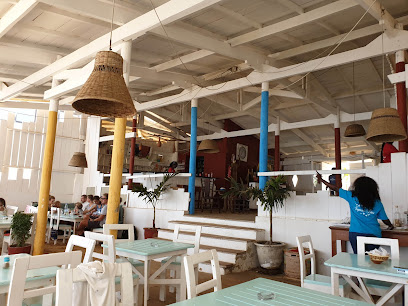
Alkimia
Experience exquisite dining at Alkimia in Dakar – where local flavors meet international cuisine in an elegant setting by the sea.
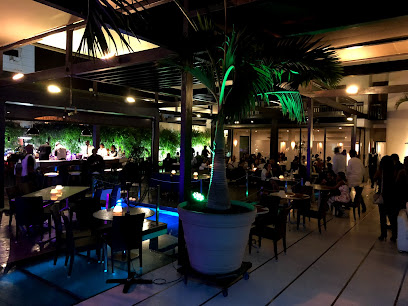
Le Cabanon Dakar
Experience exquisite dining at Le Cabanon Dakar - where local flavors meet ocean views in a vibrant atmosphere.
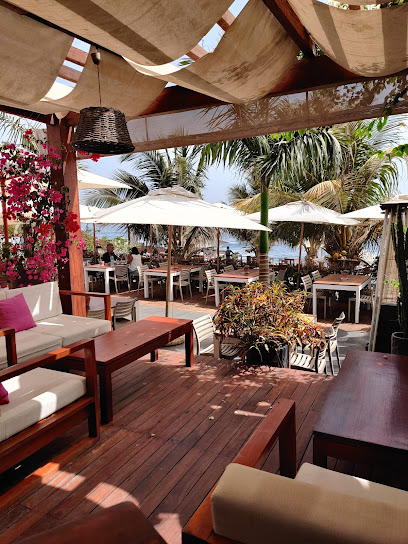
La Fourchette
Experience the best of Senegalese and international cuisine at La Fourchette, Dakar's premier restaurant offering exquisite dishes and a charming atmosphere.
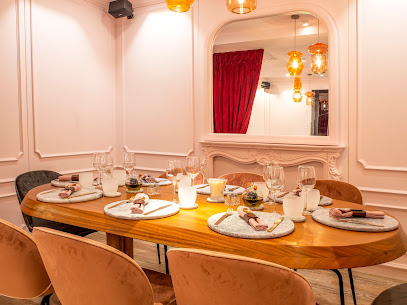
Restaurant Chez Loutcha
Discover authentic Senegalese cuisine at Restaurant Chez Loutcha, where every dish tells a story in the heart of Dakar.
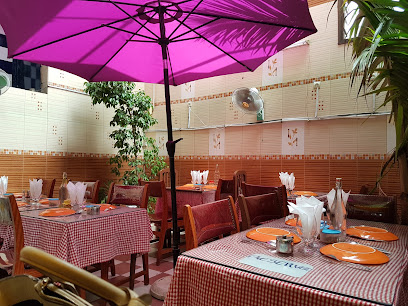
Restaurant J’Go Dakar
Experience vibrant flavors at Restaurant J’Go Dakar - a perfect blend of traditional Senegalese cuisine in a lively atmosphere.
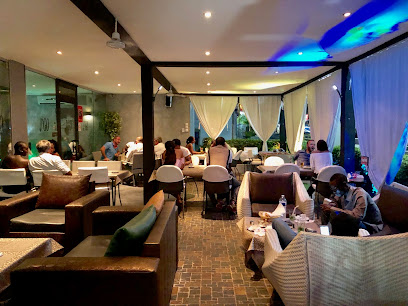
La Cabane du Pêcheur
Discover La Cabane du Pêcheur in Dakar - A Seafood Haven Celebrating Authentic Senegalese Flavors with Breathtaking Ocean Views.
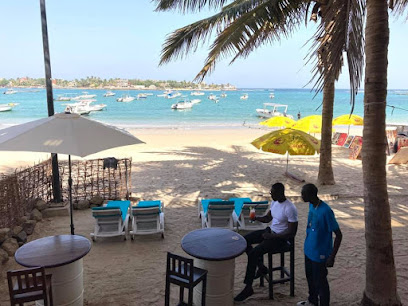
LE TANDEM Restaurant - Lounge - Take Away Food - Dakar
Experience authentic Senegalese cuisine at LE TANDEM Restaurant & Lounge in Dakar - where flavor meets relaxation.
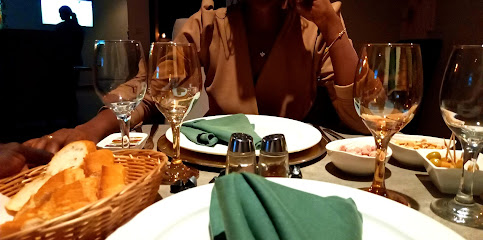
Markets, malls and hidden boutiques
Big Bazar Allemand
Explore the vibrant Big Bazar Allemand in Dakar for unique fashion accessories that reflect Senegalese culture and creativity.
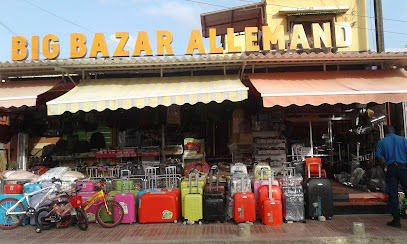
Nahyel - Boutique de Cadeaux Dakar
Explore the essence of Senegal at Nahyel - Boutique de Cadeaux Dakar, your destination for unique gifts and handcrafted treasures.
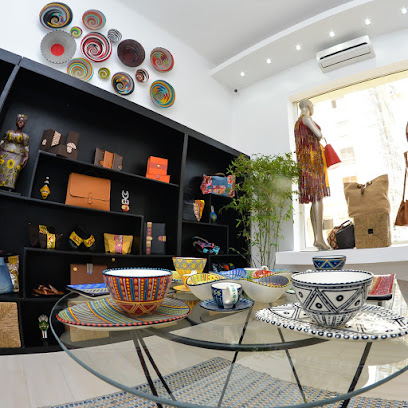
Dakado Créateur de cadeaux
Explore Dakado Créateur de cadeaux: Your gateway to authentic African handicrafts and unique souvenirs in Dakar.
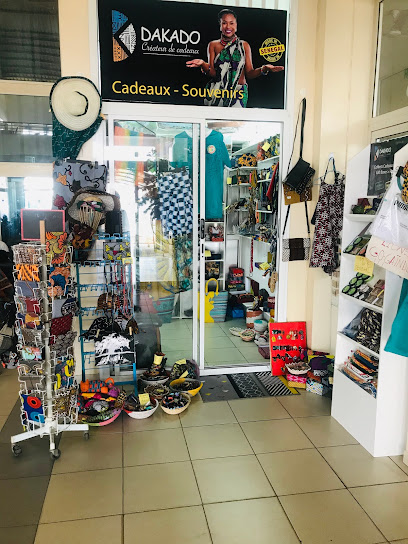
Imaara Concept Store
Discover the heart of Senegalese craftsmanship at Imaara Concept Store, where unique gifts and handcrafted jewelry await in vibrant Dakar.
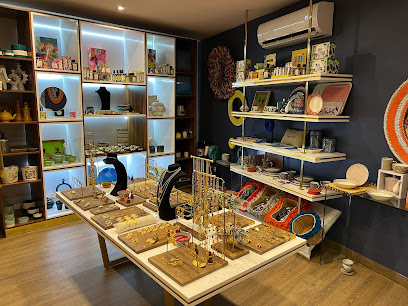
Kalsoum shop
Discover unique dresses and local fashion at Kalsoum Shop, a stylish boutique in the heart of Dakar's vibrant Liberté 5 neighborhood.

Rue de la Mode - Dakar
Discover a vibrant shopping experience at Rue de la Mode in Dakar, offering a wide range of clothing, cosmetics, and accessories for all ages.
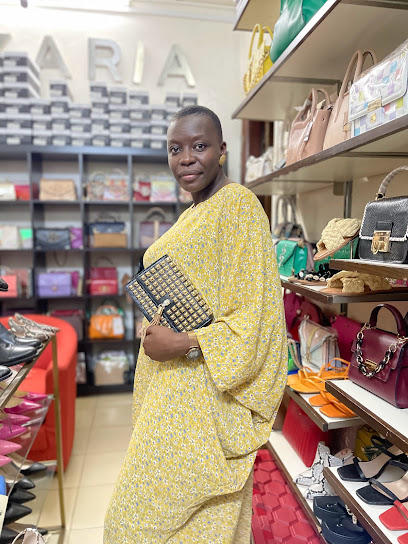
Kids around Sénégal
Discover stylish and comfortable children's clothing at Kids Around Sénégal, a vibrant store in the heart of Dakar, perfect for families on the go.
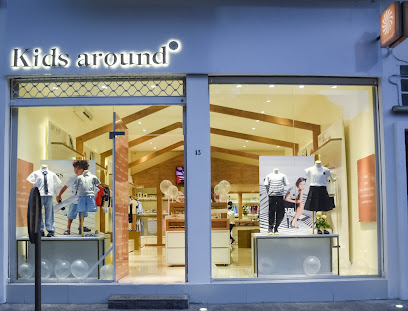
Keur Wax
Discover the heart of Senegal through unique handmade gifts at Keur Wax, a charming shop in Dakar-Plateau offering authentic souvenirs.
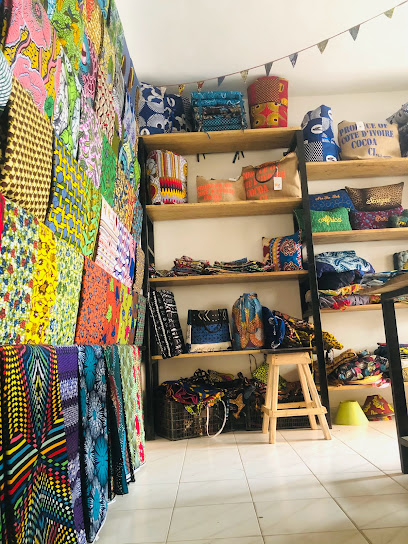
Ify Shop
Discover beauty, fashion, and tech at Ify Shop in Dakar, where local craftsmanship meets global trends for an unforgettable shopping experience.

Clementine Gift Shop Sea Plaza
Explore Clementine Gift Shop in Dakar for unique, handcrafted souvenirs that capture the essence of Senegalese culture.
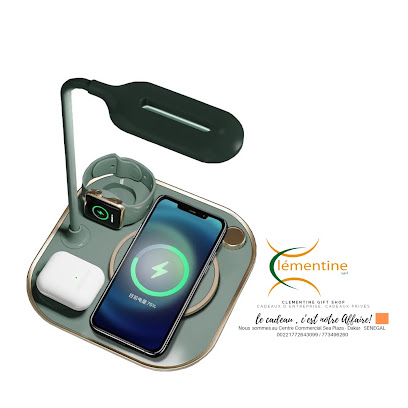
Kaolake
Explore the vibrant craftsmanship of Senegal at Kaolake, a unique gift shop in Dakar offering handcrafted treasures and local art.
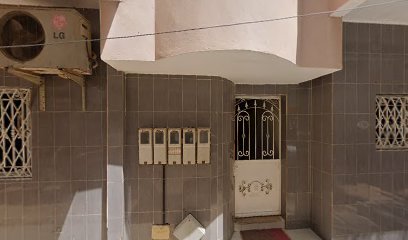
Zale shop
Discover unique artisanal crafts and local treasures at Zale Shop in Dakar, a vibrant hub of Senegalese culture.
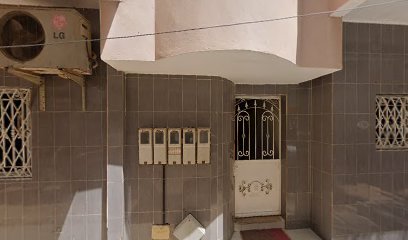
Ahlam Concept Store
Explore Ahlam Concept Store in Dakar for a blend of local and contemporary fashion reflecting Senegal's vibrant culture.
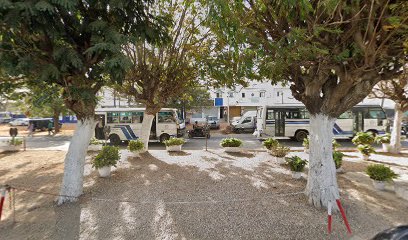
Kringloop Boutique
Explore the charm of Dakar at Kringloop Boutique, a discount store offering unique second-hand treasures and sustainable shopping experiences.
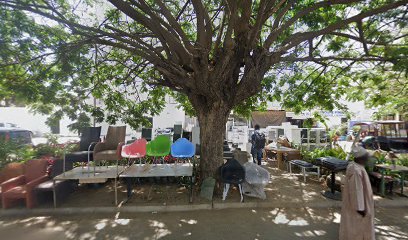
Hemlys Shop
Explore Hemlys Shop, a boutique in Dakar offering unique Senegalese crafts and a taste of local culture in a vibrant setting.
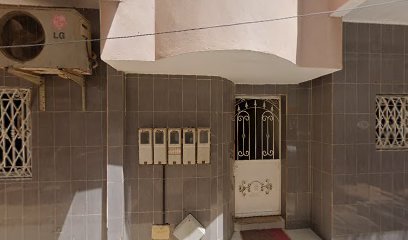
Essential bars & hidden hideouts
Restaurant le BAZOFF
Savor the vibrant flavors of Senegalese and international cuisine at Restaurant le BAZOFF in Grand Dakar.
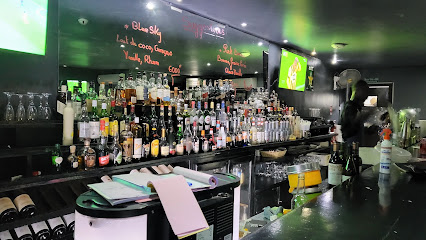
Cosmo Beach Club
Unwind at Cosmo Beach Club - a vibrant lounge in Dakar offering stunning views, delicious cocktails, and a lively atmosphere for relaxation and socialization.
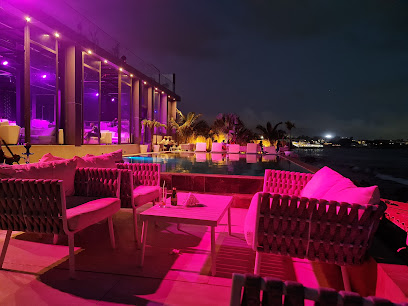
Viking Pub
Discover Viking Pub in Dakar - a lively bar offering a unique blend of local culture, vibrant atmosphere, and delicious drinks for an unforgettable night out.
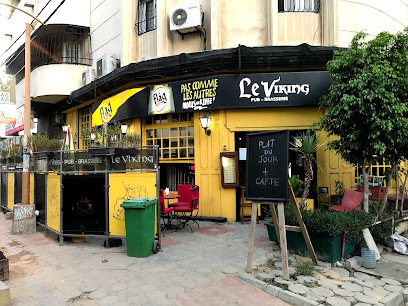
Le Khorbi
Experience the vibrant nightlife at Le Khorbi, a lively bar in Dakar offering a great selection of drinks and local culture.
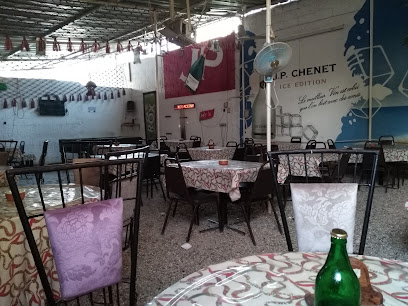
Le Relais Hotel Restaurant Bar
Discover the vibrant flavors of Dakar at Le Relais Hotel Restaurant Bar, where a warm atmosphere meets delicious local cuisine.
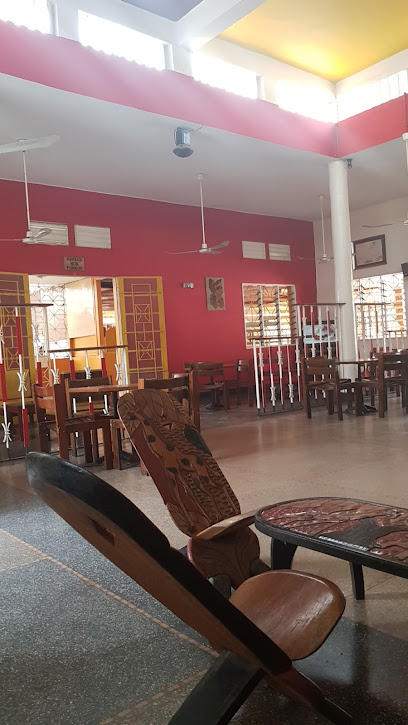
Le Jovial
Experience Dakar's vibrant nightlife at Le Jovial, a lively bar offering a diverse drink selection and a welcoming atmosphere.
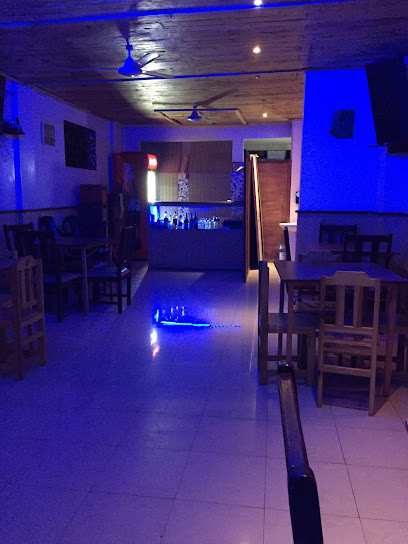
Kraken Pub
Experience the vibrant nightlife of Dakar at Kraken Pub, where great drinks and local culture come together in a lively atmosphere.
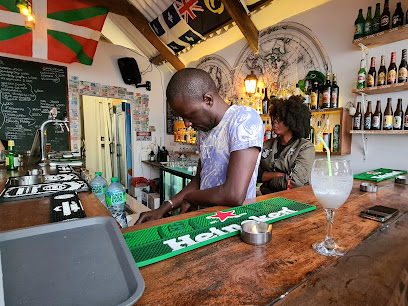
Lumière Bleu
Experience the vibrant nightlife of Dakar at Lumière Bleu, a charming bar offering local drinks and a lively atmosphere.
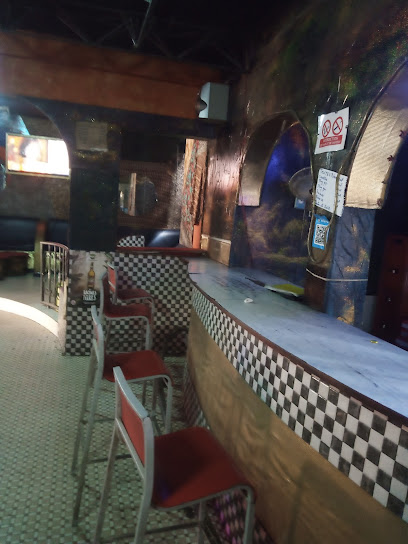
Restaurant Bar Le Ngonal
Dive into the lively nightlife of Dakar at Bar Le Ngonal, where refreshing drinks and a vibrant atmosphere await every visitor.
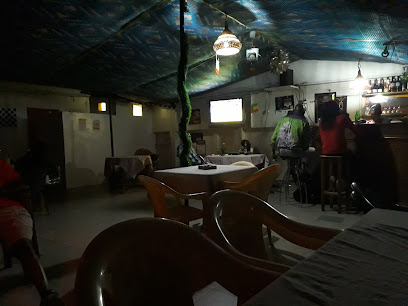
Pieds Tanqués Social Club
Discover the vibrant atmosphere at Pieds Tanqués Social Club, Dakar's go-to bar for tapas, drinks, and darts along the stunning Corniche.
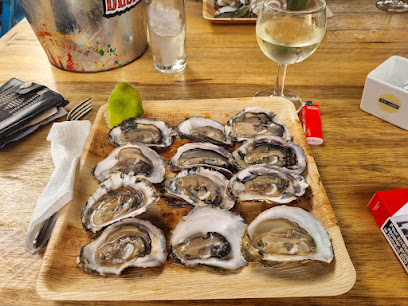
Resturant bar Hongkong2
Experience the vibrant nightlife of Dakar at Restaurant Bar Hongkong2, where great food and drinks meet a lively atmosphere!
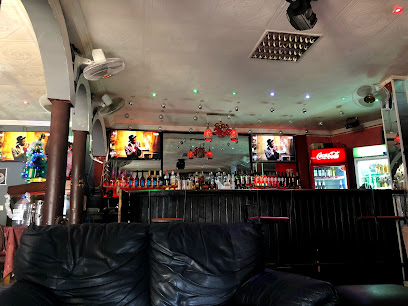
Bar Odéon
Experience the vibrant atmosphere of Bar Odéon, a must-visit bar in Dakar for refreshing drinks and local charm.
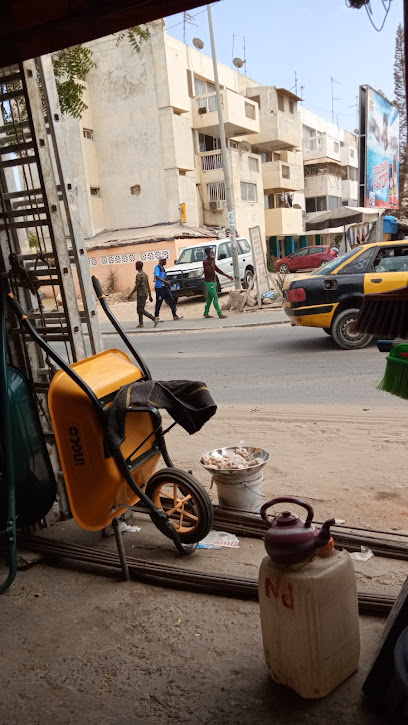
Bar Le Bois De Boulogne
Experience the vibrant nightlife of Dakar at Bar Le Bois De Boulogne, where refreshing drinks meet a lively atmosphere.
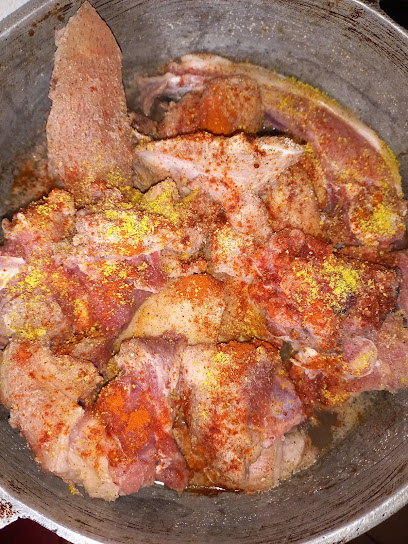
Black Pearl
Experience the vibrant nightlife of Dakar at Black Pearl, a chic lounge with stunning ocean views and expertly crafted cocktails.
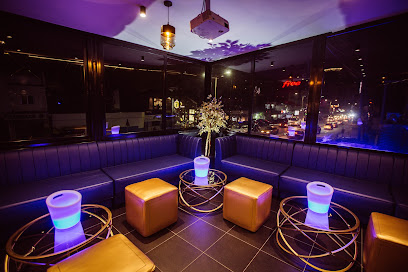
Local Phrases
-
- HelloSalam
[sa-lam] - GoodbyeBa beneen
[ba be-neen] - YesWaaw
[waaw] - NoDéedéet
[dee-deet] - Please/You're welcomeJerejef
[je-re-jef] - Thank youJërëjëf
[je-re-jef] - Excuse me/SorryDéedéet
[dee-deet] - How are you?Nanga def?
[nan-ga def] - Fine. And you?Mangi fi. Awa la?
[man-gi fi. a-wa la] - Do you speak English?Am naa seenegal?
[am naa see-na-gal] - I don't understandDéedéet
[dee-deet]
- HelloSalam
-
- I'd like to see the menu, pleaseNopp menu bi, nga def?
[nop me-nu bi, nga def] - I don't eat meatDéedéet
[dee-deet] - Cheers!Sante
[san-te] - I would like to pay, pleaseNopp la, nga def?
[nop la, nga def]
- I'd like to see the menu, pleaseNopp menu bi, nga def?
-
- Help!Ndank
[ndank] - Go away!Déedéet
[dee-deet] - Call the Police!Noppulaan polis
[nop-pu-laan polis] - Call a doctor!Noppulaan tabax
[nop-pu-laan ta-bax] - I'm lostDéedéet
[dee-deet] - I'm illDéedéet
[dee-deet]
- Help!Ndank
-
- I'd like to buy...Nopp...
[nop] - I'm just lookingDéedéet
[dee-deet] - How much is it?Xaleyi la?
[xa-le-yi la] - That's too expensiveDéedéet
[dee-deet] - Can you lower the price?Déedéet
[dee-deet]
- I'd like to buy...Nopp...
-
- What time is it?Waxtu bi la?
[wax-tu bi la] - It's one o'clockWaxtu gu juroom bi
[wax-tu gu ju-room bi] - Half past (10)Déedéet
[dee-deet] - MorningDéedéet
[dee-deet] - AfternoonDéedéet
[dee-deet] - EveningDéedéet
[dee-deet] - YesterdayDéedéet
[dee-deet] - TodayDéedéet
[dee-deet] - TomorrowDéedéet
[dee-deet] - 11
[1] - 22
[2] - 33
[3] - 44
[4] - 55
[5] - 66
[6] - 77
[7] - 88
[8] - 99
[9] - 1010
[10]
- What time is it?Waxtu bi la?
-
- Where's a/the...?Déedéet
[dee-deet] - What's the address?Déedéet
[dee-deet] - Can you show me (on the map)?Déedéet
[dee-deet] - When's the next (bus)?Déedéet
[dee-deet] - A ticket (to ....)Déedéet
[dee-deet]
- Where's a/the...?Déedéet
History of Dakar
-
The history of Dakar can be traced back to the ancient Lebou people, a subgroup of the Wolof ethnic group. They are believed to have settled in the Cap-Vert Peninsula, where Dakar is located, as far back as the 15th century. The Lebou community established the village of Ndakarou, which would later evolve into the bustling metropolis we know today.
-
In the mid-15th century, Portuguese explorers were among the first Europeans to arrive in the region. However, it was the French who established a lasting presence. In 1659, the French founded the trading post of Saint-Louis, north of Dakar. By the 19th century, the French had expanded their control to the Cap-Vert Peninsula, setting the stage for Dakar's development as a key colonial city.
-
Dakar was officially founded in 1857 as a French colonial outpost. Its strategic location on the westernmost point of Africa made it an ideal hub for trade and military operations. The construction of the Dakar-Niger Railway in the late 19th century further cemented its importance, connecting the city to the interior of West Africa and facilitating the movement of goods and people.
-
During World War II, Dakar's significance grew due to its strategic location. In 1940, the city was the site of the Battle of Dakar, also known as Operation Menace, where Allied forces attempted to seize control from Vichy French forces. Though the operation was unsuccessful, it highlighted Dakar's importance in global geopolitics.
-
Senegal gained independence from France on April 4, 1960, with Dakar as its capital. Under the leadership of President Léopold Sédar Senghor, the city underwent significant modernization. Infrastructure projects, such as the construction of new roads, schools, and hospitals, transformed Dakar into a modern African capital. The city also became a cultural hub, with Senghor promoting the concept of 'Negritude' and fostering a renaissance of African arts and literature.
-
Today, Dakar is renowned for its rich cultural tapestry. The city is home to various ethnic groups, including the Wolof, Lebou, Serer, and Fulani, each contributing to its vibrant cultural mosaic. Dakar is famous for its lively music scene, particularly Mbalax, a genre that blends traditional Senegalese rhythms with modern influences. The city also hosts numerous cultural festivals, including the Dakar Biennale, which showcases contemporary African art.
-
Dakar is home to several landmarks of historical and cultural significance. Gorée Island, a UNESCO World Heritage site, served as a major center for the transatlantic slave trade and now stands as a poignant reminder of this dark chapter in history. The African Renaissance Monument, inaugurated in 2010, symbolizes Senegal's progress and aspirations. Additionally, the IFAN Museum of African Arts houses an extensive collection of West African artifacts, offering insights into the region's diverse cultural heritage.
Dakar Essentials
-
Dakar is served by Blaise Diagne International Airport (DSS), located around 50 kilometers from the city center. The airport offers flights from numerous international destinations. From the airport, you can reach the city by taxi, airport shuttle, or rental car. Taxis are available 24/7 and the journey to the city center takes approximately 45 minutes to an hour, depending on traffic.
-
Dakar has a variety of transportation options including taxis, buses, and minibuses (known locally as 'car rapides'). Taxis are plentiful and can be hailed on the street or booked via apps. Public buses and 'car rapides' are an affordable way to get around but may be crowded and less punctual. For more convenience, consider renting a car, though traffic congestion can be significant during peak hours.
-
The official currency in Senegal is the West African CFA franc (XOF). Credit and debit cards are widely accepted in hotels, restaurants, and larger shops, but it's advisable to carry some cash for smaller establishments and markets. ATMs are readily available throughout Dakar, particularly in tourist areas and shopping centers.
-
Dakar is generally a safe city for tourists, but like any large city, it is important to stay vigilant. Petty crime such as pickpocketing can occur, especially in crowded areas and markets. Some neighborhoods, such as Medina and Grand Dakar, have higher crime rates. Avoid walking alone at night in poorly lit areas and always keep an eye on your belongings.
-
In case of emergency, dial 17 for police, 18 for fire, and 1515 for medical emergencies. Major hospitals in Dakar include Hôpital Principal de Dakar and Hôpital Aristide Le Dantec. It's advisable to have travel insurance that covers medical emergencies. Pharmacies are common and well-stocked with over-the-counter medications.
-
Fashion: Do dress modestly, especially when visiting religious sites. Avoid wearing overly revealing clothing. Religion: Do show respect for local customs, especially during Ramadan. Public Transport: Do be polite and patient; public transport can be busy. Don't eat or drink on public transport. Greetings: Do greet people with a handshake. A friendly 'As-salamu alaykum' (peace be upon you) is always appreciated. Eating & Drinking: Do try local dishes like Thieboudienne and Yassa. Don't refuse food or drink offered by hosts, as it is considered impolite.
-
To experience Dakar like a local, visit the bustling Sandaga Market for fresh produce and handcrafted goods. Take a stroll along the Corniche for stunning ocean views and street food. Engage with locals; they are often welcoming and eager to share their culture. Don't miss the chance to visit Île de Gorée, a UNESCO World Heritage Site rich in history.
Trending Landmark in Dakar
-
African Renaissance Monument
-
Marché Sandaga
-
Hann Zoological Park
-
Place du Souvenir Africain
-
House of Slaves
-
Phare des Mamelles
-
Marché soumbédioune
-
Mosque of the Divinity
-
Grand Mosque of Dakar
-
Monument du Millénaire
-
Loman Art House - Art Gallery
-
Mémorial Gorée-Almadies
-
Village Des Arts
-
House Of Urban Culture
-
Corniche Ouest
Nearby Cities to Dakar
-
Things To Do in Thiès
-
Things To Do in Mbour
-
Things To Do in Kaolack
-
Things To Do in Bakau
-
Things To Do in Serrekunda
-
Things To Do in Serekunda
-
Things To Do in Banjul
-
Things To Do in Lamin
-
Things To Do in Saint-Louis
-
Things To Do in Brikama
-
Things To Do in Gunjur
-
Things To Do in Farafenni
-
Things To Do in Soma
-
Things To Do in Janjanbureh
-
Things To Do in Canchungo


















